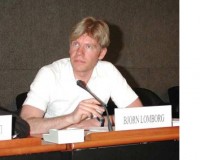Mark Henderson, Science Editor, Copenhagen, Times Online
Malnutrition should be the world’s major priority for aid and development, a panel of eight leading economists, including five Nobel laureates, declared yesterday. The provision of supplements of vitamin A and zinc to children in developing countries, to prevent avoidable deficiencies that affect hundreds of millions of children, is the most cost-effective way of making the world a better place, the Copenhagen Consensus initiative has found.
Three other strategies for improving diets in poor nations were also named among the top six of 30 challenges assessed by the project, which aims to prioritise solutions to the world’s many problems according to their costs and benefits. Efforts to control global warming by cutting greenhouse gas emissions, however, were rated at the bottom of the league table, as the economists considered the high costs of such action were not justified by the payoffs. Research into new low-carbon technologies, such as solar and nuclear fusion power, was ranked as more worthwhile, in 14th place.
The previous Copenhagen Consensus, held in 2004, also listed global warming as its lowest priority. The exercise was organised by Bjorn Lomborg, the controversial Danish statistician who has long argued that though climate change is real, current approaches to fighting it offer poor value for money. Dr Lomborg said: “This gives us the ultimate overview of how global decisions can best be made and how we can best spend money to do good in the world. Prioritising is hard. It’s much easier to say we want to do everything, but unfortunately we have limited resources. We don’t just focus on what’s fashionable, but also on what’s rational.”

See the rankings of the 30 major programs here. See the Times story here.




